Filter by

The rationality quotient :toward a test of rational thinking
How to assess critical aspects of cognitive functioning that are not measured by IQ tests: rational thinking skills.OCLC-licensed vendor bibliographic record.
- Edition
- -
- ISBN/ISSN
- 9780262336819
- Collation
- 1 online resource (xvii, 459 pages) :illustrations
- Series Title
- -
- Call Number
- -

Pathways to peace :the transformative power of children and families
"Can more peaceful childhoods promote a culture of peace? Increasing evidence from a broad range of disciplines shows that how we raise our children affects the propensity for conflict and the potential for peace within a given community. In this book, experts from a range of disciplines examine the biological and social underpinnings of child development and the importance of strengthening fam…
- Edition
- -
- ISBN/ISSN
- 9780262321181
- Collation
- 1 online resource (xx, 453 pages).
- Series Title
- -
- Call Number
- -

Augmented Reality for Engineering Graphics
This open access book offers a timely snapshot of Augmented Reality (AR) technology, with an emphasis on its application within the mechanical and manufacturing engineering domains, for both educational and industrial purposes. Reporting on the experience of the authors, the book introduces readers to the principles of product design, with an emphasis on modern strategies and approaches for use…
- Edition
- -
- ISBN/ISSN
- 978-3-031-44640-5
- Collation
- XIII, 89
- Series Title
- -
- Call Number
- -
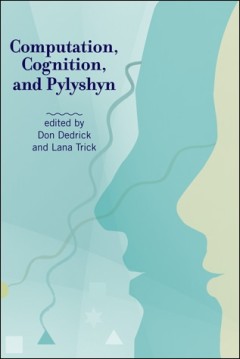
Computation, Cognition, and Pylyshyn
"A Bradford book."A collection of cutting-edge work on cognition and a celebration of a foundational figure in the field.OCLC-licensed vendor bibliographic record.
- Edition
- -
- ISBN/ISSN
- 9780262255196
- Collation
- 1 online resource (xvii, 344 pages) :illustrations
- Series Title
- -
- Call Number
- -
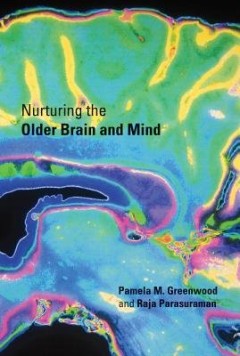
Nurturing the older brain and mind
The authors show that scientific research does not support the notion of the inexorable and progressive effects of cognitive aging in all older adults. They report that many adults maintain a high level of cognitive function into old age and that certain lifestyle factors contribute to the preservation of cognitive abilities.OCLC-licensed vendor bibliographic record.
- Edition
- -
- ISBN/ISSN
- 9780262301336
- Collation
- 1 online resource (xii, 329 pages) :illustrations (some color)
- Series Title
- -
- Call Number
- -
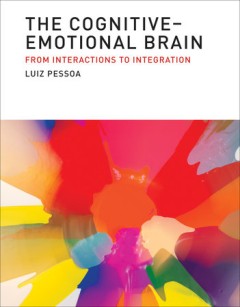
The cognitive-emotional brain: From interactions to integration
The idea that a specific brain circuit constitutes the emotional brain shaped thinking about emotion and the brain for many years. Recent behavioural, neuropsychological, neuroanatomy, and neuroimaging research, however, suggests that emotion interacts with cognition in the brain. In this book, Luiz Pessoa moves beyond the debate over functional specialization, describing the many ways that emo…
- Edition
- -
- ISBN/ISSN
- 9780262314756
- Collation
- 1 online resource (320 pages)
- Series Title
- -
- Call Number
- -
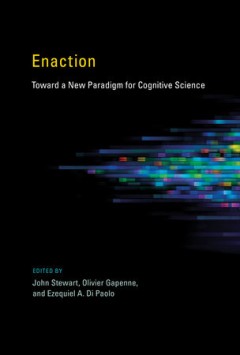
Enaction: Toward a new paradigm for cognitive science
"A Bradford book.""Based on an International CNRS Summer School organized by the Association pour la Recherche Cognitive (ARC), held from 29 May to 03 June 2006, Ile d'Ol?eron, France"--Text.This book presents the framework for a new, comprehensive approach to cognitive science. The proposed paradigm, enaction, offers an alternative to cognitive science's classical, first-generation Computation…
- Edition
- -
- ISBN/ISSN
- 9780262289795
- Collation
- 1 online resource (xvii, 463 pages) :illustrations
- Series Title
- -
- Call Number
- -
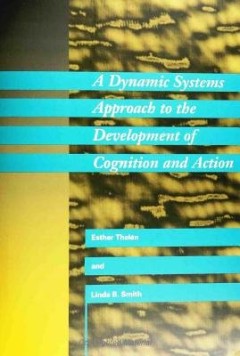
A dynamic systems approach to the development of cognition and action
A Dynamic Systems Approach to the Development of Cognition and Action presents a comprehensive and detailed theory of early human development based on the principles of dynamic systems theory. Beginning with their own research in motor, perceptual, and cognitive development, Thelen and Smith raise fundamental questions about prevailing assumptions in the field. They propose a new theory of the …
- Edition
- -
- ISBN/ISSN
- 9780262284875
- Collation
- 1 online resource.
- Series Title
- -
- Call Number
- -
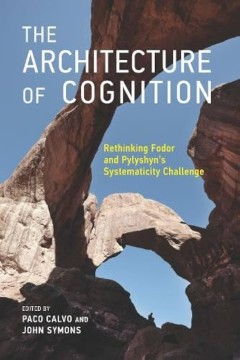
The Architecture of Cognition: Rethinking Fodor and Pylyshyn's Systematicity …
In 1988, Jerry Fodor and Zenon Pylyshyn challenged connectionist theorists to explain the systematicity of cognition. In a highly influential critical analysis of connectionism, they argued that connectionist explanations, at best, can only inform us about details of the neural substrate; explanations at the cognitive level must be classical insofar as adult human cognition is essentially syste…
- Edition
- -
- ISBN/ISSN
- 9780262322461
- Collation
- 1 online resource
- Series Title
- -
- Call Number
- -
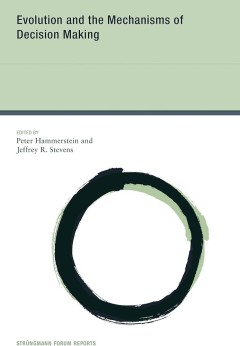
Evolution and the Mechanisms of Decision Making
"Eleventh Ernst Str?ungmann Forum held June 19-24, 2011, Frankfurt am Main."How do we make decisions? Conventional decision theory tells us only which behavioral choices we ought to make if we follow certain axioms. In real life, however, our choices are governed by cognitive mechanisms shaped over evolutionary time through the process of natural selection. Evolution has created strong biases i…
- Edition
- -
- ISBN/ISSN
- 0262306026
- Collation
- 1 online resource (xi, 434 pages) :illustrations (some color).
- Series Title
- -
- Call Number
- -
 Computer Science, Information & General Works
Computer Science, Information & General Works  Philosophy & Psychology
Philosophy & Psychology  Religion
Religion  Social Sciences
Social Sciences  Language
Language  Pure Science
Pure Science  Applied Sciences
Applied Sciences  Art & Recreation
Art & Recreation  Literature
Literature  History & Geography
History & Geography